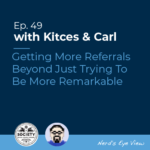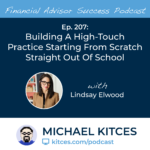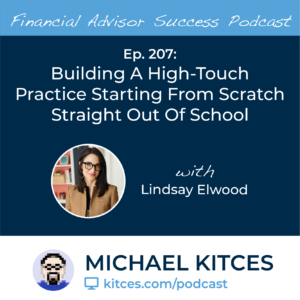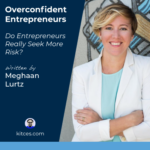Achieving success as a financial advisor is difficult. Not just because of the challenge of learning the necessary information (and how to deliver that information), but also because of the perennial challenge for advisors in getting people to (in marketing parlance) “know them, like them, and trust them” enough to become clients and pay the advisor for their expertise. Which is why, despite the tremendous growth in recent years of available channels to connect with prospective clients, by far the most common (and reliable) means of growth for advisors is when existing clients (who already know, like, and trust their advisor) refer their friends and family to the advisor. Still, though, while “referrals” remains the most common channel by which advisors get new clients, most are not getting as many referrals as they would like, and struggle with figuring out how to actively get more referrals in a way that is both genuine and scalable, in a world where just trying to be “remarkable” may no longer be enough.
In our 49th of Kitces & Carl, Michael Kitces and client communication expert Carl Richards discuss why asking clients to refer their family and friends has become increasingly difficult for advisors in recent years, the key mindset shift that advisor should make when thinking about growing their business through referrals, and a systematic strategy to actively go about making that happen (beyond just trying to do more and give more away to clients in the hopes that they will tell their friends and family about it)!
As a starting point, it’s important to recognize that, as the industry has shifted towards a more fee-based model (where clients see the fees that they pay as a line item in their statements), the old “I get paid two ways” conversation (by the work you do with me as an advisor, and giving me a referral to your friends and family) is no longer a comfortable one to have. Yet, when asked how they go about generating referrals in a post-commission world, most advisors still don’t really have a good answer other than they try to give remarkable service and then hope that their clients will, in turn, remark to their friends and family about what a great advisor they have.
Unfortunately, that process is neither reliable nor repeatable for most, which is why advisors should instead adopt an approach that is. A more targeted strategy is for the advisor to instead make a shortlist of the clients that they would most like to replicate, scheduling a short call with those clients, and asking them, if they were in the advisor’s shoes, how they would go about finding more clients like them. Some conversations may not go anywhere, but a few may result in the actual name of a new referral on the spot! But by far the most valuable outcome is an idea, that comes from the client, about a good way to meet more people just like them. And because those ideas are coming from the client, chances are pretty good that they’ll be the first in line to show up with their friends or family to an outing or event that they thought of in the first place!
Ultimately, the key point is that getting clients to refer their friends and family to their advisor is about creating room for clients to become invested in the success of the ideas that will help their advisor build relationships rather than just trying to provide remarkable service (which is still important) and then hoping for the best. Because if advisors can show that they are genuinely interested in their clients’ interests, ideas, and opinions, then those clients will become actively engaged in activities that will give prospective clients the opportunity, in turn, to get to “know, like, and trust” the advisor as well.






 Welcome back to the 207th episode of the Financial Advisor Success Podcast!
Welcome back to the 207th episode of the Financial Advisor Success Podcast!



